The Vietnam War left a lasting impression on American culture, including our everyday language. Many phrases that originated in military jargon during this turbulent period have quietly slipped into our civilian conversations. From business meetings to casual chats with friends, we regularly use words and expressions that once belonged exclusively to soldiers in the jungle. These colorful terms carried powerful meanings in combat zones and have evolved to help us describe our modern-day challenges.
1. AWOL – Absent Without Leave
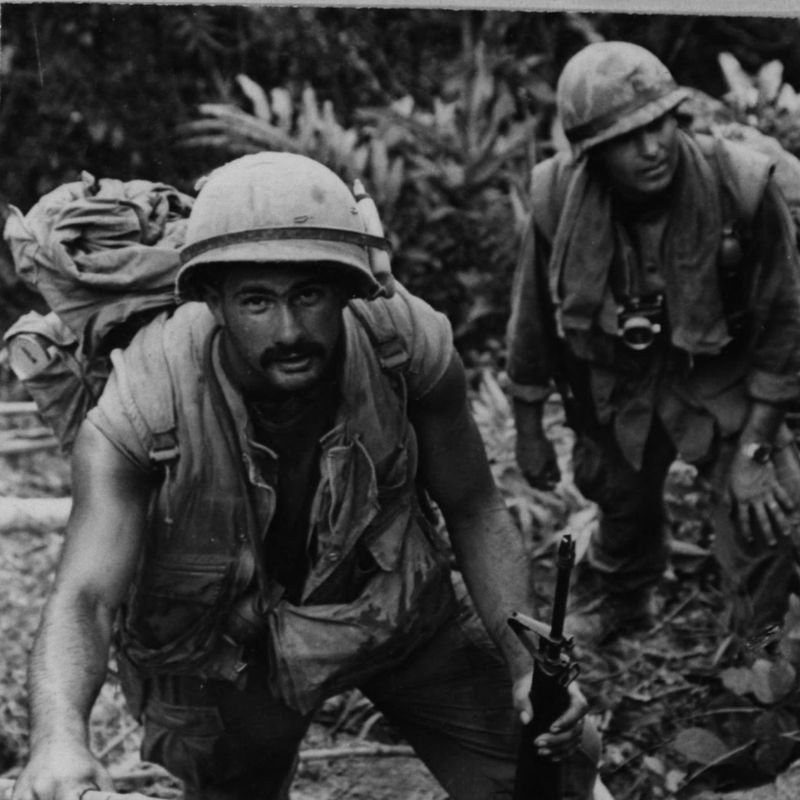
Military personnel who disappeared from duty without permission were labeled AWOL – a serious offense that could lead to court-martial. The acronym packed a powerful punch in its simplicity.
Today, the term has relaxed into everyday conversation. Your friend might be “AWOL” when they don’t show up for dinner plans. Your coworker goes “AWOL” during an important deadline. The expression maintains its core meaning – someone who’s vanished when they should be present.
The term’s journey from military offense to casual descriptor shows how military language seeps into civilian life, losing its severe consequences but keeping its descriptive power.
2. Hit the Fan
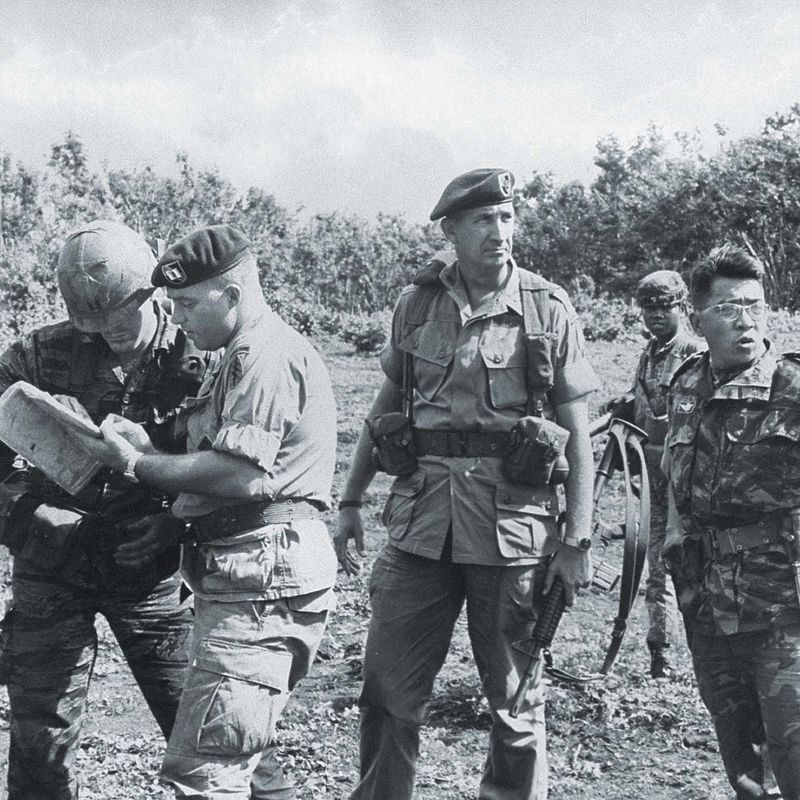
When soldiers said something was about to “hit the fan,” everyone knew chaos was imminent. This sanitized version of a more colorful military expression warned of impending disaster without using profanity.
The phrase perfectly captured moments when everything suddenly goes wrong simultaneously. In today’s offices and homes, we use it when projects collapse, deadlines crash, or family gatherings spiral into arguments.
The term’s staying power comes from its visual imagery – something messy spreading everywhere quickly. While civilians might never experience combat chaos, the expression helps us communicate our own versions of disorder with military precision.
3. In the Trenches
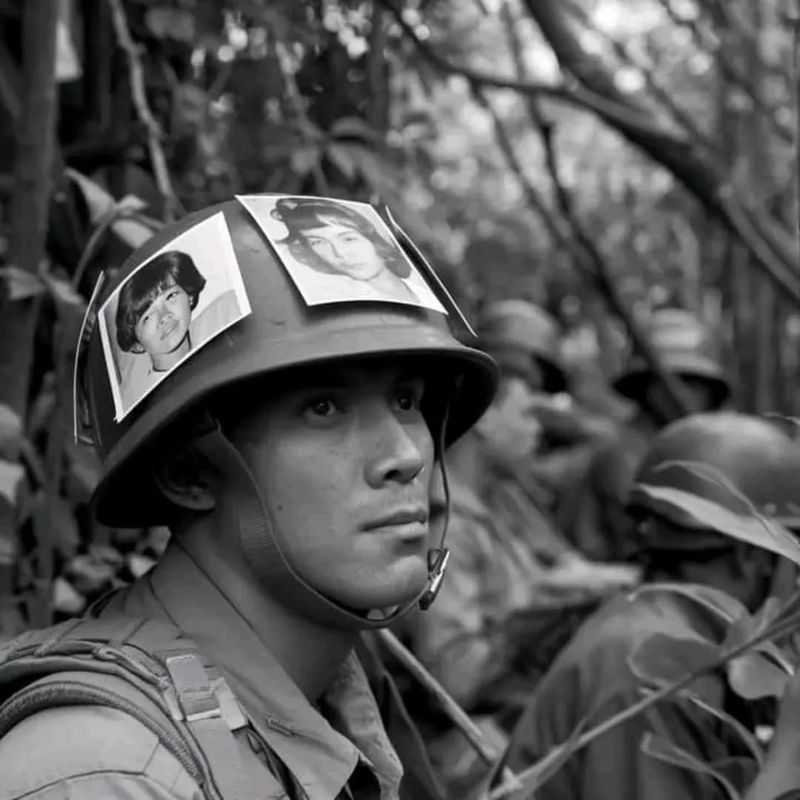
Though born in WWI’s literal fighting trenches, this phrase gained renewed power during Vietnam. Soldiers used it to describe the grueling frontline experience where the real fighting happened.
Today, we apply it to hardworking employees handling difficult customers or parents managing screaming toddlers. The person “in the trenches” faces the toughest challenges directly while others may direct from afar.
The expression honors difficult work by comparing everyday struggles to warfare – suggesting genuine respect for those doing challenging tasks. When your boss acknowledges you’re “in the trenches,” they’re recognizing your direct confrontation with problems others might avoid.
4. Got Your Six
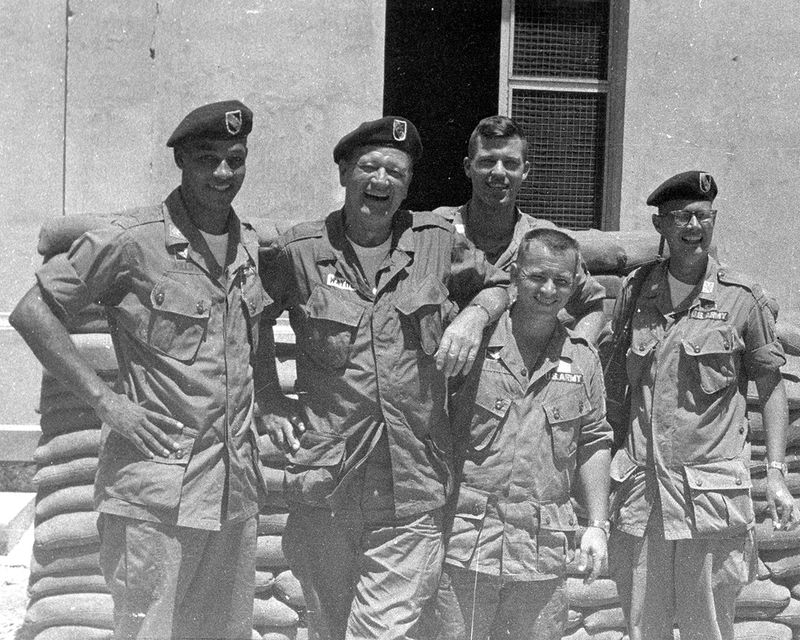
Imagine a clock face placed over a soldier – twelve o’clock is directly ahead, six o’clock directly behind. When someone had your “six,” they watched your most vulnerable position.
This life-saving promise between soldiers has transformed into a powerful expression of loyalty. Friends use it to convey unwavering support. Colleagues say it to signal they’ll defend your reputation in meetings.
The phrase retains its protective essence while losing its combat context. It communicates something deeper than “I’ll help you” – it promises vigilance against unseen threats. When someone truly has your six, they’re not just supporting you; they’re protecting you from dangers you might not even see.
5. Charlie
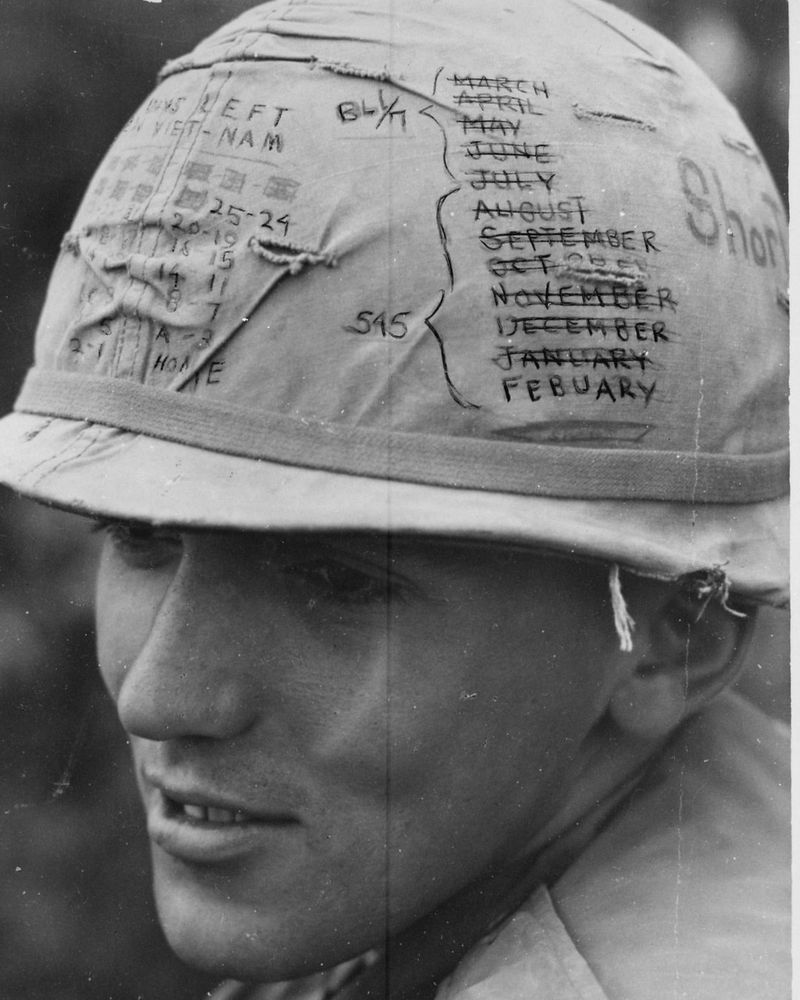
American troops called their Viet Cong opponents “Charlie” – derived from the military phonetic alphabet where VC became “Victor Charlie” and then simply “Charlie.” The nickname transformed an intimidating enemy into something soldiers could discuss more casually.
While most people don’t use it for enemies today, the term survives in military communication and popular culture. Radio operators still use “Charlie” for the letter C, and military movies often reference it.
The term demonstrates how soldiers create language to process difficult realities. By giving the enemy a nickname, troops could discuss threats without the psychological weight of formal terms. This psychological distancing through language remains a powerful coping mechanism.
6. Boomer
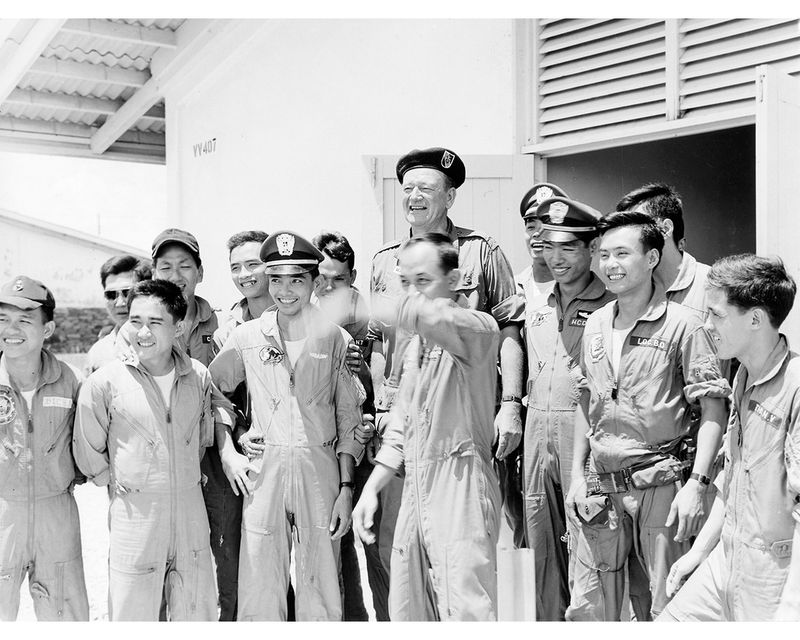
Long before it described a generation, “boomer” referred to loud, powerful artillery during Vietnam. Soldiers used it for big guns and explosions that dominated the battlefield with their deafening sound.
The term’s evolution shows how military language transforms over time. While today’s usage as a generational descriptor isn’t directly connected to its Vietnam roots, both meanings convey something large and impactful.
Military slang often follows this pattern – starting with specific technical meanings before broadening into cultural shorthand. The term’s dual history reminds us how words carry hidden military connections, even when their primary meanings have shifted dramatically over decades.
7. Bird
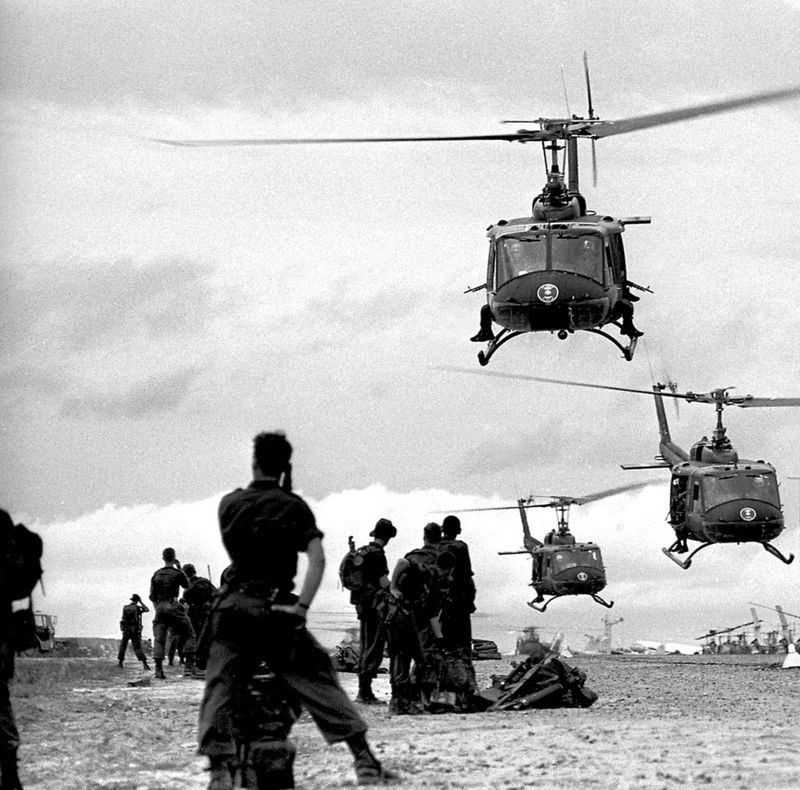
Helicopters weren’t just transportation in Vietnam – they meant survival. Soldiers called these life-saving aircraft “birds,” creating a nickname that was faster to say during emergencies than “helicopter.”
Pilots still use this term today, and it’s spread beyond military circles into emergency services and civilian aviation. When someone mentions a “bird” landing or taking off, they’re using Vietnam-era shorthand.
The nickname likely stuck because it captured something essential about helicopters – their ability to swoop in, hover, and fly away like living creatures. While civilian uses lack the life-or-death urgency of combat rescues, the term’s efficiency and visual accuracy ensure its continued use decades after the war.
8. Hump It
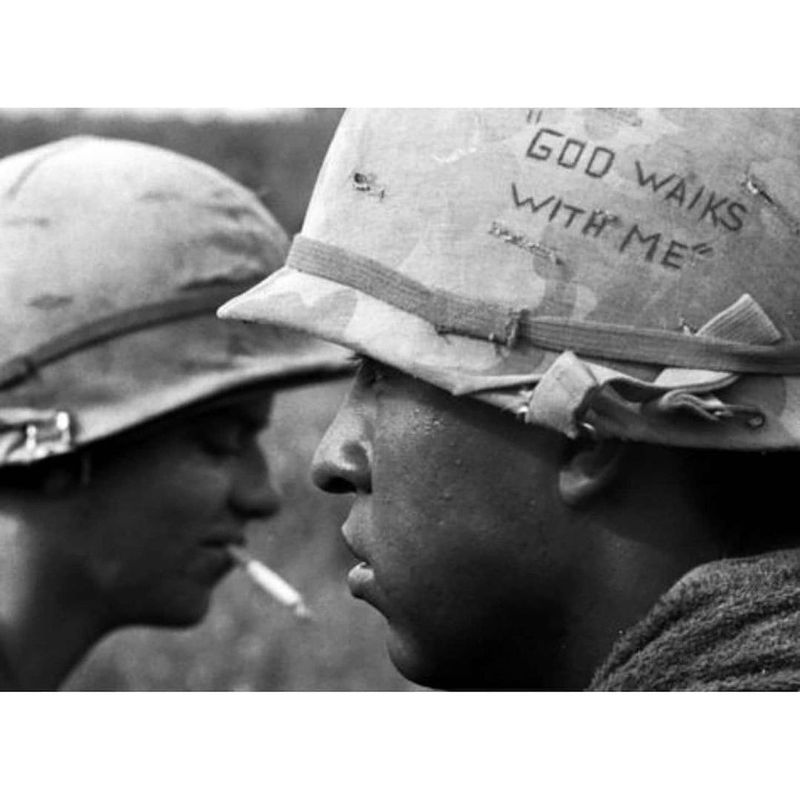
Soldiers in Vietnam’s rugged terrain “humped” heavy packs through jungle and mountains, often carrying 60+ pounds of equipment for days. The phrase captured the physical burden and determination required to keep moving despite exhaustion.
Today, we use it to describe pushing through difficult tasks with sheer willpower. A student might “hump it” through final exams, or a team might “hump it” to meet a deadline.
The expression maintains its core meaning – carrying a heavy burden through difficult conditions. While modern office workers aren’t navigating booby-trapped jungles, the phrase helps us communicate that sense of struggling forward under pressure when quitting isn’t an option.
9. Grunt
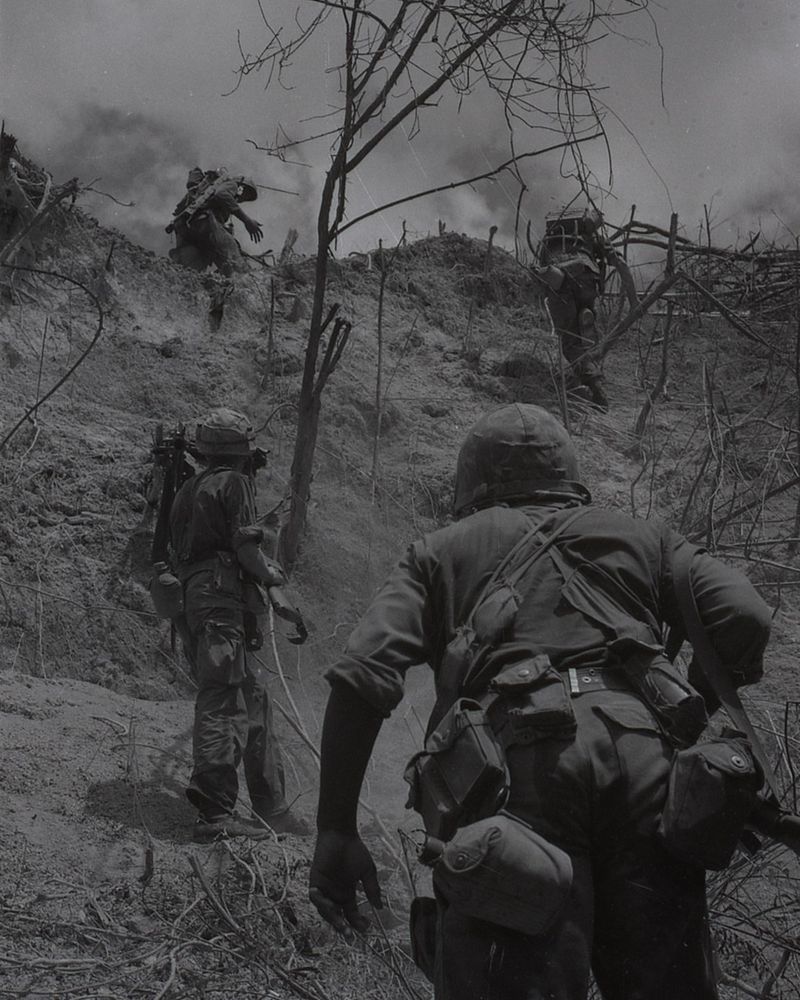
Infantry soldiers earned the nickname “grunts” for the most basic and physically demanding combat roles. Far from insulting, many infantry troops embraced the term with pride – it recognized their essential, ground-level contribution.
The word perfectly captured the sound of exertion under heavy packs and difficult conditions. Today, we use “grunt work” to describe thankless but necessary tasks in any job.
What makes this term stick is its honest acknowledgment of effort. When someone describes themselves as doing “grunt work,” they’re connecting their unglamorous but essential contribution to the tradition of infantry soldiers who handled the hardest, dirtiest aspects of warfare.
10. LZ – Landing Zone
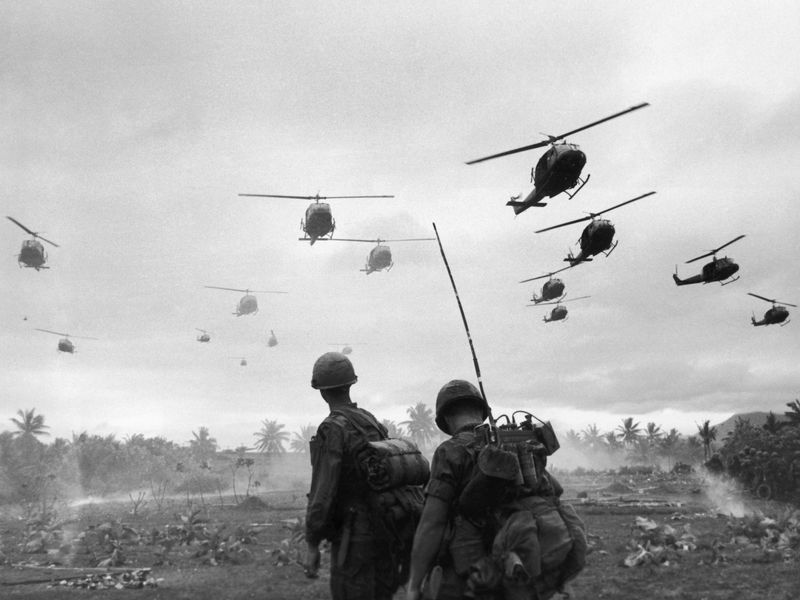
In Vietnam’s dense jungles, finding safe helicopter landing spots was literally life-or-death. Troops called these critical areas “LZs” – a term that communicated urgent importance in just two letters.
The acronym has maintained its meaning while expanding beyond military contexts. Emergency medical services call helicopter landing areas “LZs.” Wildland firefighters use it when coordinating air support.
What makes this term endure is its precision and efficiency. In high-stress situations, clear communication saves lives. The term’s journey from combat zones to civilian emergency services shows how military language often survives when it solves communication problems better than any alternative.
11. Short-Timer
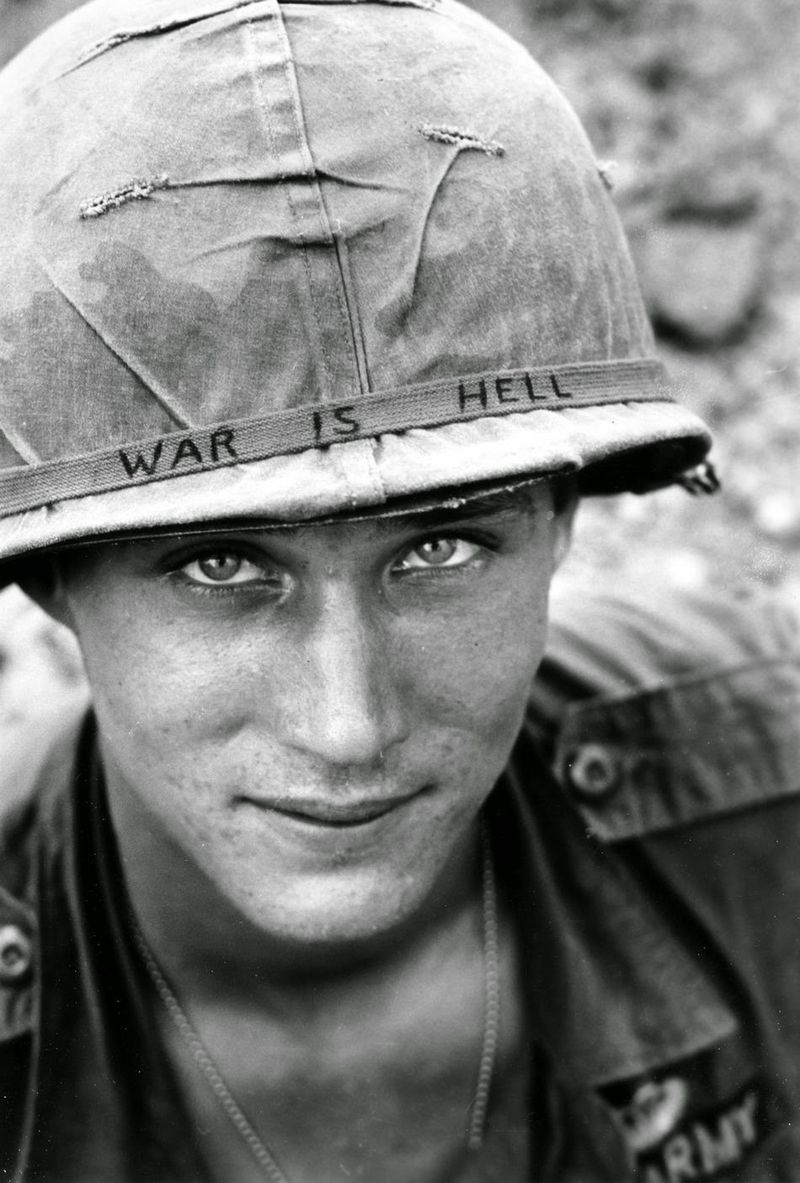
Soldiers counting down their final days in Vietnam became “short-timers” – a status that brought both relief and new anxiety. Having survived most of their tour, they were tantalizingly close to going home.
The term captured a unique psychological state: almost finished but not quite there. Today, we use it for employees working their notice period or students in their final semester.
Short-timers in Vietnam sometimes carried “short-timer sticks” – countdown calendars they’d mark each day. The modern equivalent might be crossing days off a calendar before retirement or graduation. The term survives because it perfectly describes that in-between state when you’ve mentally moved on but physically must remain.
12. Zero Dark Thirty
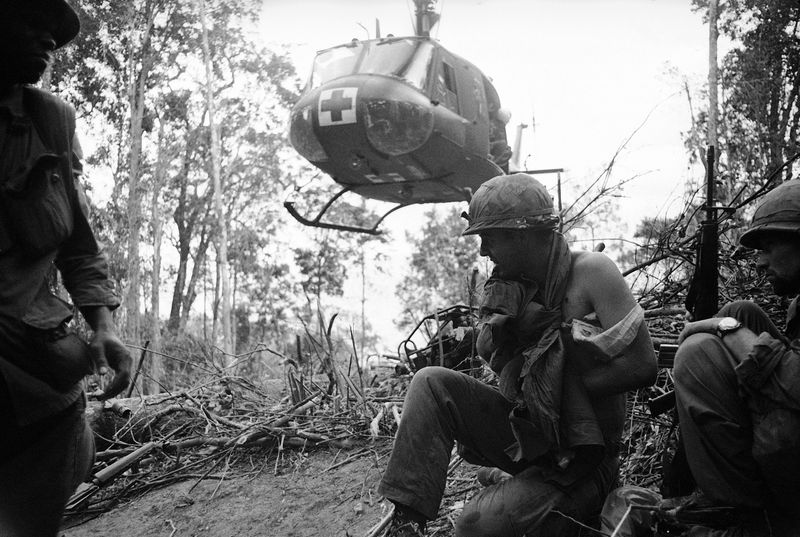
Military operations often launched in predawn darkness – a time soldiers called “zero dark thirty.” The phrase combined military time (where 00:30 is 12:30 am) with the darkness emphasis to create a vivid description of those early morning hours.
The expression entered wider public awareness through the 2012 film about the bin Laden raid. Now people use it to describe any extremely early morning activity.
The term carries a sense of seriousness and purpose – you don’t wake at zero dark thirty for something trivial. When someone says they’re starting their day at this hour, they’re borrowing military intensity to emphasize their commitment. The phrase communicates not just time but dedication to a mission, whatever that mission might be.
13. The Real Deal
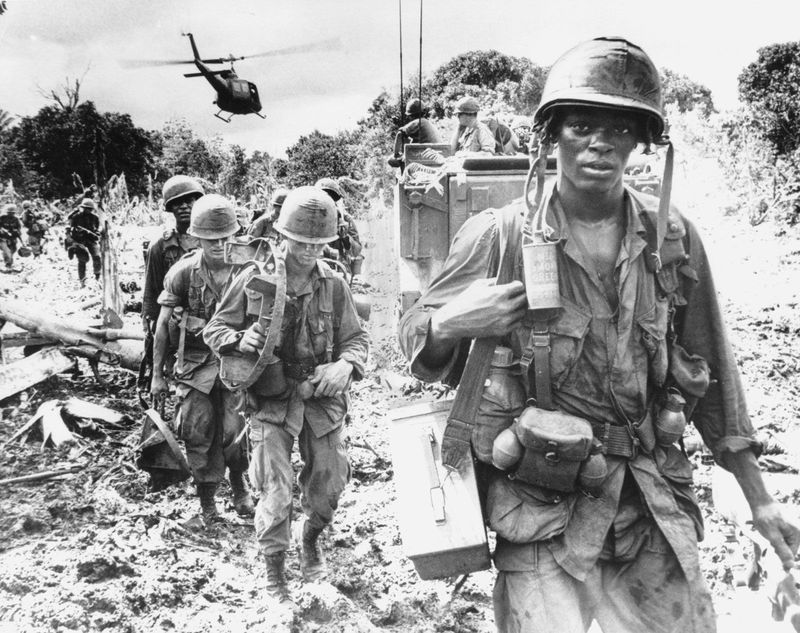
Combat quickly revealed who could be trusted when bullets flew. Soldiers called reliable comrades “the real deal” – genuine, tested individuals who wouldn’t break under pressure.
The phrase spread beyond foxholes into everyday language. We use it for authentic products, honest people, or legitimate opportunities. A “real deal” job offer means it’s genuinely good, not too good to be true.
The expression maintains its core meaning – something proven authentic through testing. While civilian uses rarely involve life-threatening situations, the phrase still carries that implication of something that’s been verified under pressure. When someone calls you “the real deal,” they’re paying you a profound compliment rooted in battlefield trust.
14. Shell Shock
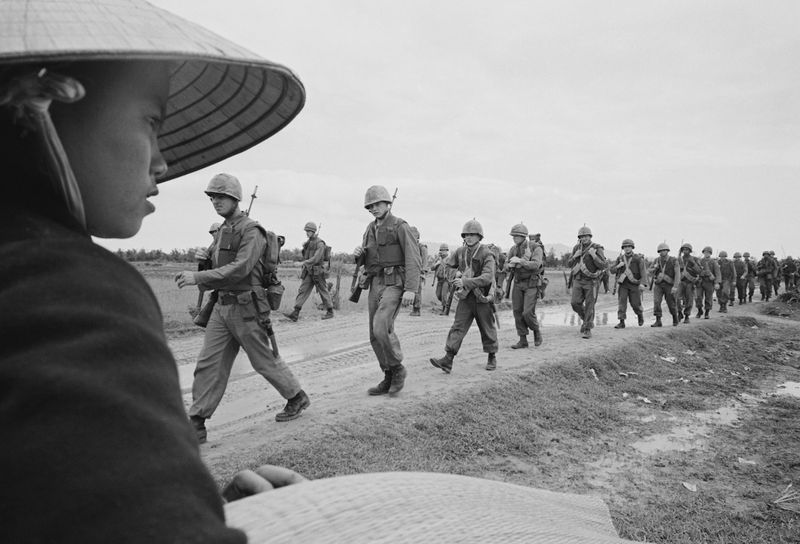
Though originating in WWI, “shell shock” remained common terminology during Vietnam for what we now call PTSD. The term vividly described the psychological impact of combat trauma through physical metaphor – as if the mind had been bombarded like the body.
Today, we use it more broadly for any severe emotional reaction. Someone might appear “shell-shocked” after receiving bad news or witnessing an accident.
Medical understanding has evolved beyond this simplistic term, but its linguistic power persists. The phrase captures that stunned, overwhelmed state following trauma in a way more clinical terms sometimes miss. While modern mental health professionals avoid it, the expression continues in everyday speech because it communicates emotional devastation so effectively.
15. Dog Tags
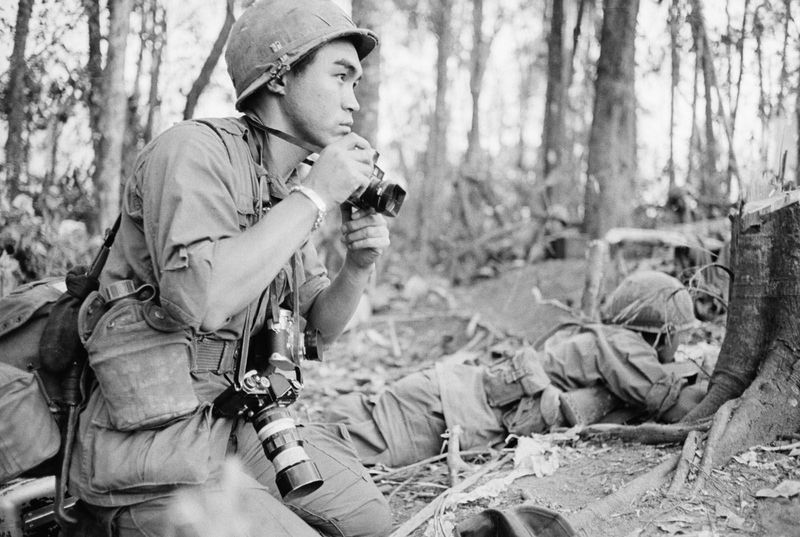
These metal identification tags carried essential information about each soldier – name, blood type, religion – hanging from chains around their necks. In worst-case scenarios, they ensured proper identification of casualties.
Today, “dog tags” has expanded far beyond military use. ID badges hanging from lanyards in offices are sometimes called dog tags. Fashionable necklaces mimicking their shape became popular in the 1990s.
The term’s civilian adoption shows how military practicality influences mainstream culture. What began as a grim necessity – identifying fallen soldiers – transformed into fashion statements and workplace identification. While civilian versions lack the life-or-death significance of military originals, they maintain the basic function: telling others who you are.
16. Scuttlebutt
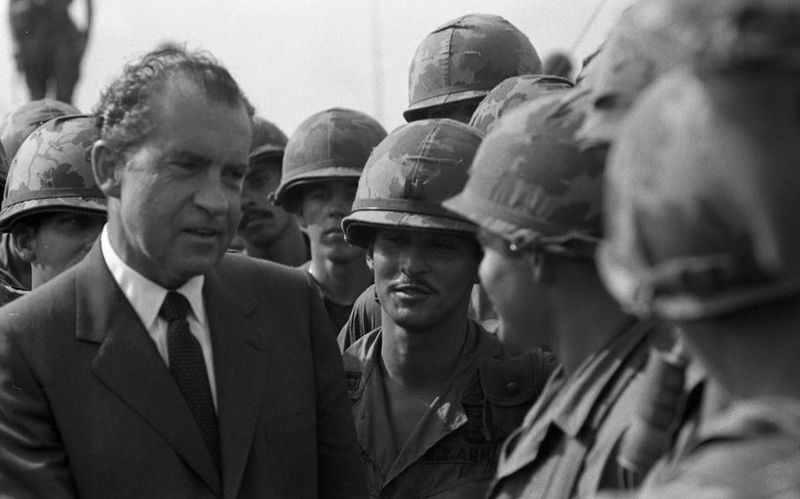
Navy sailors gathered around water barrels (called “scuttlebutts”) to share news and gossip, creating a nautical version of the office water cooler. During Vietnam, the term spread throughout military branches to describe unofficial information channels.
Today, “What’s the scuttlebutt?” simply means “What’s the gossip?” in offices and social circles. The word adds a colorful, slightly old-fashioned flavor to asking about rumors.
The term’s survival demonstrates how military expressions often enter civilian language when they fill a specific need with personality. “Gossip” sounds negative, while “scuttlebutt” feels more neutral – information that might be true or false, but is definitely interesting. Its nautical origins are forgotten by most who use it today.

Comments
Loading…